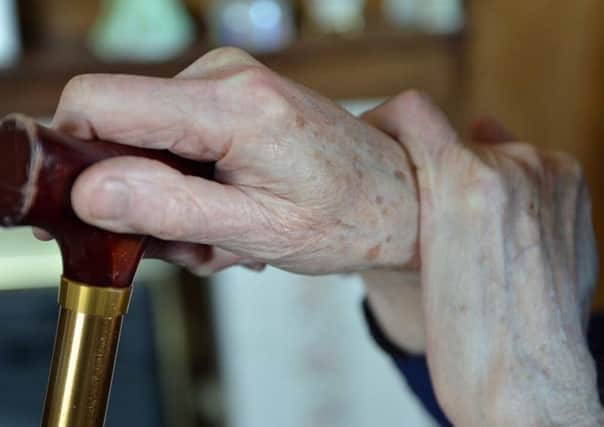Landmark study could offer hope of early diagnosis for Alzheimer's patients in Yorkshire


The £6.9m trial launched today could mark a turning point in tackling the disease by finding the early warnings signs of the disease.
This would mean experimental treatments being tested on patients with early Alzheimer’s, before they have been seriously affected.
Advertisement
Hide AdAdvertisement
Hide AdThe Deep and Frequent Phenotyping study, backed by the Medical Research Council, aims to identify biomarkers that allow Alzheimer’s to be diagnosed even when there are no obvious symptoms.
Success could herald a revolution in the treatment of Alzheimer’s, with drugs halting the disease before irreparable damage to the brain has occurred.
Currently 850,000 people in the UK have dementia, including 8,500 in Leeds, the majority having Alzheimer’s. In less than 10 years, the number of dementia patients in Britain is predicted to reach a million and that figure could double by 2051.
No new dementia drugs have been approved for use in more than a decade, with the vast majority of clinical trials ending in failure.
Advertisement
Hide AdAdvertisement
Hide AdExperts believe this could be because the drugs are being tested on people whose brains are already damaged, because clear symptoms of Alzheimer’s only appear after the disease has progressed for many years.
Lead scientist Professor Simon Lovestone, from Oxford University, said: “We know that Alzheimer’s disease starts long before it is noticed by those with the disease or their doctor.
“If we can identify the biomarkers present in this very early stage, we have the chance of treating the disease earlier, which is vital if we are to prevent damage to people’s memory and thinking.”
The 250 participants in the pioneering trial will undergo up to 50 tests, including detailed measurements of movement and retinal imaging to spot subtle changes affecting vision. Blood, urine and cerebrospinal fluid samples will also be analysed and the potential new biomarkers will be used as well as established tests such as brain imaging and assessments of memory.
Advertisement
Hide AdAdvertisement
Hide AdMatt Murray, from the Alzheimer’s Society, said: “This exciting research will help transform our understanding of the earliest signs and symptoms of dementia, supporting researchers to ensure that they recruit the most appropriate people for their trials.”
Health Secretary Jeremy Hunt said: “Dementia can be a heart-breaking condition, but it is my mission as health secretary to make this country the best place in the world to get a dementia diagnosis and support, as well as being a global leader in the effort to find a cure.”
A promising new drug for people with mild to moderate Alzheimer’s is currently being tested in Leeds. Participants are being sought for the trial of RVT-101, also known as Interpidine, which has been shown to boost cognition and the ability to carry out everyday tasks when used in conjunction with another drug.